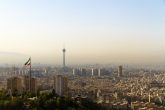September 19, 2018
Turkey's deal with Russia still leaves the US with a dilemma on its Syrian strategy
Turkey just scored a big win in Syria that could save tens of thousands of lives and avert what would have been the worst humanitarian crisis of an already terrible war, but the road ahead for the Turks in Syria is perilous.
On Monday Turkish President Recep Tayyip Erdogan and Russian President Vladimir Putin announced a deal to establish a 15 to 20 kilometre demilitarised zone around the Greater Idlib region in northwest Syria. Monday’s deal, which Russian defence minister Sergei Shoigu stated would prevent a new campaign against Greater Idlib by the Assad regime, makes Turkey the de facto sovereign with authority over Idlib’s three million residents, more than a million of whom have been displaced from other regions of Syria.
Mr Erdogan’s decision to stand his ground in Idlib has worked for now. US President Donald Trump deserves a lot of credit for stiffening his resolve. Mr Trump’s new Syria team, which has been on the job for just over a month, is seeking to build a common US-Turkish strategy that would prevent another refugee crisis engulfing Turkey, boost the Geneva process and diminish the power of Iran.
Idlib was the first test of this new strategy and although the final result will still be unknown for some time, the early indication is that Mr Trump’s team has got off to a new start. The question is – now what?
While the international community is still waiting for specific details concerning the Turkish-Russian deal, Mr Putin made it clear on Monday that he expects Turkey to use the reprieve from Bashar Al Assad’s war machine to remove Al Qaeda and other extremist organisations from Idlib.
Although this might not be widely accepted in Washington, Mr Putin expressed a sentiment that is completely in line with the US government’s understanding that Greater Idlib is “the largest Al Qaeda safe haven since 9/11”.
Read the Full Article at The National
More from CNAS
-
“The Ayatollah Has No Clothes” – with Rich Goldberg and Richard Fontaine
Richard Fontaine is CEO of the Center for American Security, joins Call Me Back to assess the threat FROM Iran and the threat TO Iran. Listen to the full episode on Call Me ...
By Richard Fontaine
-
What Does Yahya Sinwar’s Death Mean for the War in Gaza?
Jonathan Lord, Senior Fellow and Director of the Middle East Security program, joins RN Drive to discuss the death of Sinwar who has long been viewed as one of the militant gr...
By Jonathan Lord
-
Russia in the Middle East with Jonathan Lord and Hanna Notte
One year after the October 7 attacks by Hamas, the crisis in the Middle East has grown more and more complex. With the region teetering on the brink of broader conflict, the B...
By Jonathan Lord, Hanna Notte, Andrea Kendall-Taylor & Jim Townsend
-
A Year of Anguish for the Hostages in Gaza—and Their Families
October 7 gave rise to unexpected bipartisan coalitions of D.C. experts and legislators who lent their knowledge to help U.S. hostage families and victims of the conflict navi...
By Daniel Silverberg




